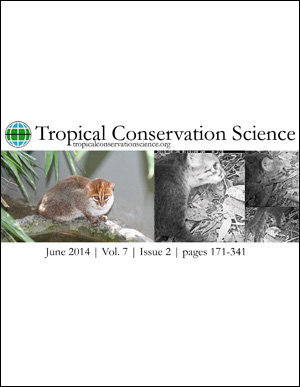Mammal Depletion Processes as Evidenced From Spatially Explicit and Temporal Local Ecological Knowledge

In the face of increased defaunation in tropical regions, embracing the complexity of wildlife population trends is important to guide the development of effective conservation and restoration strategies. Here, based on a case study in Democratic Republic of the Congo, we use an ethnozoological approach, with a protocol that captures spatially explicit and temporal ecological knowledge on defaunation. Our case study evidences the overall depletion profile for the majority of mammal species in the whole landscape and particularly for red colobus, orycterope, and chimpanzee. The elephant has already disappeared locally, and okapi and forest buffalo only persist in the northern part of the landscape. On the other hand, postdepletion sustainability seems to characterize Yangambi Reserve, with more stable populations of fast-reproducing/small-sized species. Local extinctions or sharp declines in mammal populations in our landscape are either the direct consequence of conflict or the result of cascading effects that have their origins in the rebellions between 1996 and 2002. From a conservation perspective, the challenge is to understand how the depletion process can be reversed in a postconflict context and to identify the levers that can inverse the cascading effect to allow species recovery. We encourage the use of our methodology in regions that are regularly used by a significant number of observers. The proposed methodology provides cost-effective, reliable, and spatially explicit data on population trends, covering for a wide range of species and allows to understand the historical pattern of defaunation as well the wider context in which changes occurred.

